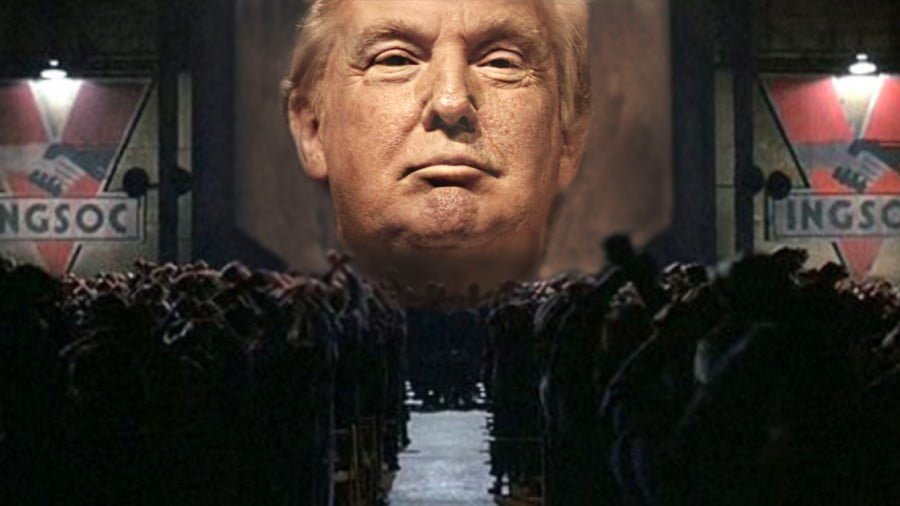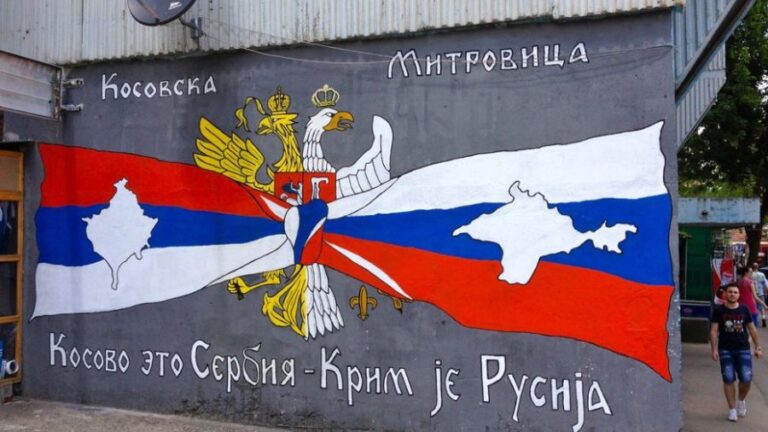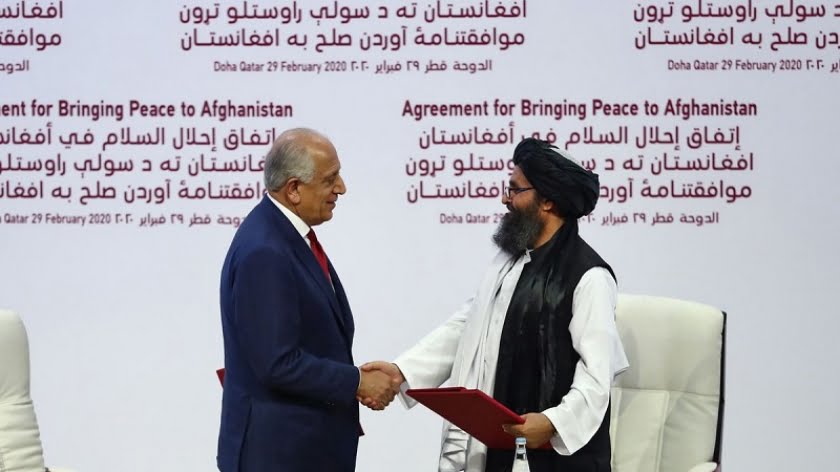Seoul’s “New Old” Proposal to End Inter-Korean Conflict
On September 22, 2020, South Korean President Moon Jae-in “called for a declaration to the end of” the Korean conflict in a prerecorded speech addressed to the participants of the 75th session of the United Nations General Assembly. “This year marks the 70th anniversary of the Korean War and now is the time to terminate the tragic situation, which remains on the peninsula,” he said. According to the President, adopting such a declaration will ensure peace on the Korean Peninsula, which will, in turn, guarantee peace in Northeast Asia, as a whole, and bring positive changes to the world order down the line. The ROK leader urged the international community to back his proposal. “I hope that the UN and the international community provide support so that we can advance into an era of reconciliation and prosperity through the end-of-war declaration,” he stated.
The President added that the declaration would “open the door to complete denuclearization” and the possibility of lasting peace on the Korean Peninsula. A Blue House spokesperson has purportedly told journalists that President Moon Jae-in and his aides do not expect to achieve such outcomes overnight as they are patiently preparing for what the future may bring.
The South Korean leader makes such idealistic proposals periodically. For instance, at the time when the trade war between Japan and the ROK was in full swing, Moon Jae-in said that Korea could “catch up with Japan economically through inter-Korean cooperation”. The ROK President has also requested the IOC (International Olympic Committee) to support the two Koreas’ joint bid for 2032 Olympics and Paralympics. And during his 2020 New Year’s Address, he proposed registering the demilitarized zone as a UNESCO World Heritage Site, together with North Korea, and expressed hope that Kim Jong-un would visit the ROK. Even more recently (i.e. in May), Moon Jae-in suggested that quarantine cooperation with North Korea would be “a viable way to jump-start a broader range of inter-Korean cooperation projects”. According to him, such a move would not violate the UN Security Council sanctions imposed against Pyongyang.
His current proposal is actually not as unrealistic. In fact, he first made it during his speech at the UN two years ago. And the North Korean leadership has stated, on more than one occasion, that a peace treaty or an end-of-war declaration would be viewed as an important step forward. In addition, a concrete goal outlined in the 2018 Panmunjom Declaration was to put a formal end to the conflict between a US-led UN force + South Korea, and the DPRK.
A number of analysts view President Moon Jae-in’s latest proposal as a desperate attempt ”to make progress in inter-Korean relations”, hopefully, by the end of the year. In addition, the fact that his message was addressed to the UN General Assembly indicates that the South Korean leader probably cannot find a breakthrough to the stalled peace process by himself and needs the backing of the international community
As our readers remember, the third inter-Korean summit took place in Pyongyang over two years ago. In the Pyongyang Joint Declaration signed by both Korean leaders, the two sides agreed to promote exchanges and cooperation in economic, humanitarian, public, cultural, etc. spheres. And Kim Jong-un was also to visit Seoul at the invitation of President Moon Jae-in. Following the summit, the agreements reached were further defined and reaffirmed during high-level inter-Korean negotiations. However, in reality, it would seem that practically no concrete steps forward have been made and the DPRK was certainly not entirely to blame for such an outcome. As a result, the North Korean leadership has issued sharp criticism of the South Korean government and, personally, Moon Jae-in, which is why the inter-Korean relations failed to develop further. And after the DPRK had blown up the liaison office in Kaesŏng, the peace process came to a complete halt.
There are still one and a half year left in Moon Jae-in’s presidential term. And at present, he seemingly does not wish to go down in history as someone under whose leadership the relations between the two Koreas deteriorated, with the Olympic thaw in them unable to stand the test of time. The ROK leader is viewed as a populist not a leftist, which means his image is of great concern to him. And with the US Presidential election only a few weeks away, it is still unclear whether Moon Jae-in will have as much freedom under Joe Biden as he does now.
The absence of an end-of-war declaration and a signed peace treaty is a very serious issue with several aspects to it, including legal ones. In 1953, the Korean Armistice Agreement was signed by representatives of the DPRK, the United Nations Command and the Chinese People’s Volunteer Army (PVA), while the tyrannical government of Syngman Rhee refused to do so. The issue of the peace agreement on the Korean peninsula was officially raised at the Geneva Conference in 1954 but no progress was made. Hence, the DPRK and South Korea are still technically at war, which means that a number of extraordinary measures (meant for wartime) are also in place. And although, starting in 1991, both Koreas have been trying to change the situation by reaching additional agreements to the one signed in 1953 (as, for example, the 2018 joint declaration stipulating cooperation in the military sphere), all the issues are yet to be resolved. In essence, the author is referring to formally ending military hostilities by both sides.
Still, the signing of a peace treaty would also mean accepting the division of the Korean Peninsula. And Article 3 of South Korea’s Constitution stipulates that“the territory of the Republic of Korea shall consist of the Korean peninsula and its adjacent islands”. In addition, in the ROK, the Supreme Court and the Constitutional Court regard North Korea “as an anti-government organization”. From time to time, a few South Korean politicians publicly state that the ROK leadership does not intend to unify the two Koreas by “taking over” the North. However, as a rule, such people are not high-ranking officials who can speak for the government on the issue.
Furthermore, in theory, any peace treaty ought to be signed by nations that actually took part in the conflict. This is problematic because of the China-US confrontation at present, and the fact that neither the United States nor the PRC were actually at war from a legal standpoint. However, the UN forces (i.e. one of the official warring parties) were comprised of mostly US troops, and the People’s Volunteer Army fought on the Chinese side.
Nowadays, the United States and the PRC are in conflict, hence the Korean issue is not a priority for either of these nations. It is by no accident that unlike Moon Jae-in, neither Donald Trump nor Xi Jinping mentioned the DPRK in their speeches during the 75th session of the United Nations General Assembly. A professor of North Korean studies told The Korea Times on condition of anonymity that it was not the right time “for a South Korean leader to talk to the international community about a declaration ending the Korean War”. In his/her opinion, the proposal was “incompatible with the situation in US-North Korea, US-China and inter-Korean relations”.
Some experts have criticized Moon Jae-in’s speech because it “did not contain much that North Korea would want to hear”, such as realistic steps toward mutual military security. It would seem that everything the ROK leader has proposed so far either amounts to abstract statements or idealistic plans that sound good but are impossible to implement.
On September 24, the Yonhap News Agency, citing the Korea JoongAng Daily, called Moon Jae-in’s UN speech dangerous because “without any concrete steps taken to ensure the denuclearization of North Korea”, it would “trigger a critical security vacuum on the Peninsula”.
According to the article, it was a miscalculation to believe the military threat posed by the DPRK had ended only because it had not attacked South Korea recently. After all, North Korea did blow up the inter-Korean liaison office in Kaesong, and “Kim Jong-un justified his possession of nuclear weapons” not long ago, “vowing to protect the security and future of” the motherland based on “reliable and effective nuclear deterrence for self-defense”.
In addition, Moon Jae-in’s proposal to adopt the end-of-war declaration could face opposition from the United States as well as a strong negative reaction within South Korea because it is tied to sensitive issues, such as the status of US Forces Korea (USFK). The report also said that the President’s suggestion might “offer North Korea grounds to call for the withdrawal of the US Forces Korea (USFK)”, the disbandment of the ROK/U.S. Combined Forces Command (CFC), and as a result, South “Korea’s security could face serious risks” in a worst-case scenario.
Therefore, the author does not believe that the compelling words in Moon Jae-in’s address will have the desired effect.







